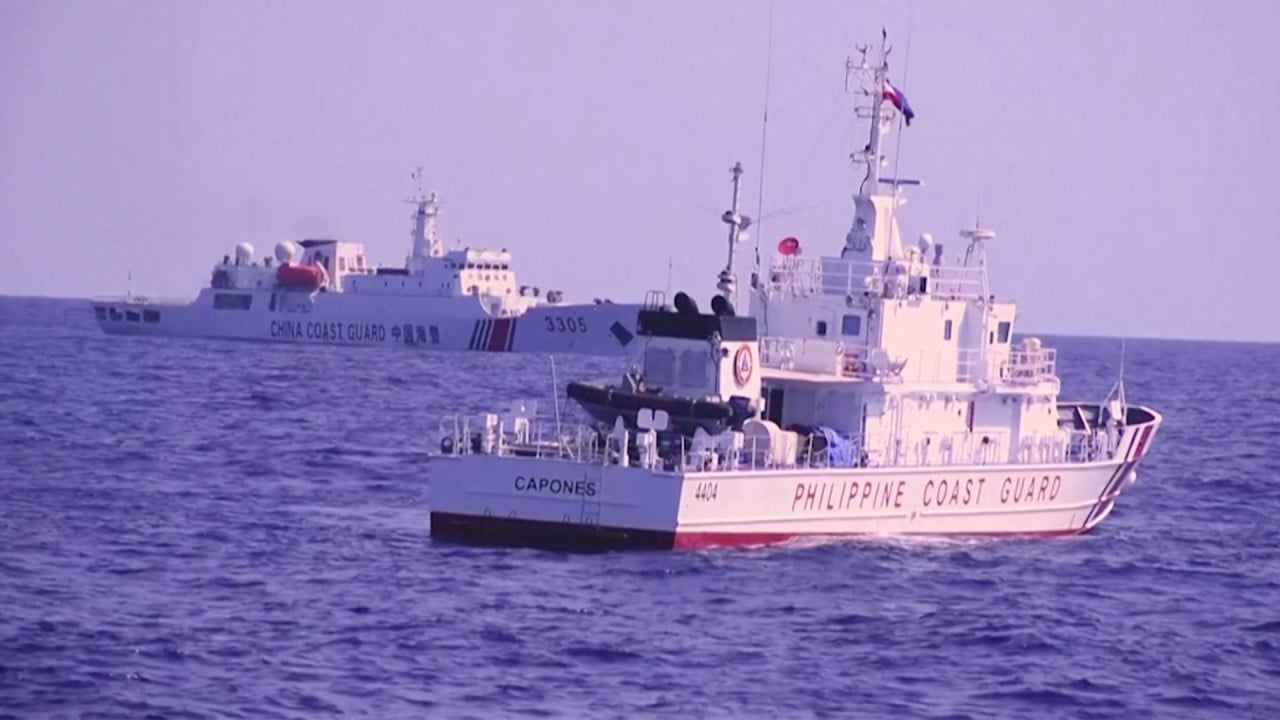
China warns Philippines against military blocs, promises more investment
- Xi Jinping tells Rodrigo Duterte that regional armed alliances are not the path to regional security
- Call comes as Duterte prepares to step down from office and US steps up engagement with Asia
In a phone call on Friday afternoon, Xi also pledged more Chinese investment in the Philippines and purchases of goods from the country.
“International developments prove once again that regional security cannot be achieved by strengthening military alliances and China is willing to work with the Philippines and countries in the region … to keep the leadership of regional security firmly in its own hands and to jointly maintain the hard-won peace and stability in the region,” Xi said in an apparent reference to the war in Ukraine.
He said China would maintain “continuity and consistency” in its policy towards the Philippines and the two sides should continue to work together on Covid-19 vaccine development, public health, infrastructure and trade.
In response, Duterte said the Philippines was willing to work with China on pandemic prevention, trade, infrastructure and tourism, according to a Chinese foreign ministry statement.
His country would work with China to “properly deal with South China Sea issues to set an example for peaceful resolution of disputes while maintaining regional peace and stability”, Duterte said.
He added that the Philippines would also seek to play “a positive role” between China and the Association of Southeast Asian Nations, of which Manila is key player.
South China Sea: presidential nominees want Manila to get tough on Beijing
It is not common for a Chinese president to hold talks with outgoing foreign leaders but as its rivalry with the US has intensified, China has seen Southeast Asia as its diplomatic priority.
The phone call comes as Duterte, who has fostered ties with China, prepares to step down next month, raising uncertainties about relations between the two countries.
And last year when the US announced the Aukus military partnership with Australia and Britain, the Philippines was among the Southeast Asian countries that gave its endorsement.
For Beijing, inclusion of Manila in the Quad would be among China’s worst-case scenarios.
In the meantime, the Philippines and Japan are expected to hold their first 2+2 talks in Tokyo on Saturday, in which the foreign and defence ministers of both sides will meet to “lay the groundwork for the Philippine-Japan security partnership in the next decade”, according to Manila.
Japanese Defence Minister Nobuo Kishi and his Philippine counterpart Delfin Lorenzana met in Tokyo on Thursday and reaffirmed the importance of maintaining and strengthening a free and open Indo-Pacific, according to the Japanese Defence Ministry.
Without mentioning China, they also said any attempts to change the status quo by force were “unacceptable”.
China, Vietnam, the Philippines, Malaysia, Brunei and Taiwan have overlapping claims over the resource-rich and strategically important waterway, and Duterte’s government has pushed for a conclusion of a code of conduct to manage tensions in the waters, though progress has been slow.
Tensions flared up ahead of the Xi-Duterte talks, when Manila accused a Chinese coastguard ship of manoeuvring for days near a research vessel deployed by Philippine and Taiwanese scientists.
According to the National Institute of Geological Sciences, the Chinese coastguard ship sailed about 2 to 3 nautical miles (3-5km) from the research ship, R/V Legend, for several days in late March.
The scientists were carrying out a survey to help map offshore faults and other geological features that could set off future earthquakes, tsunami and other potentially catastrophic hazards in the region, the institute said.
Additional reporting by Associated Press



